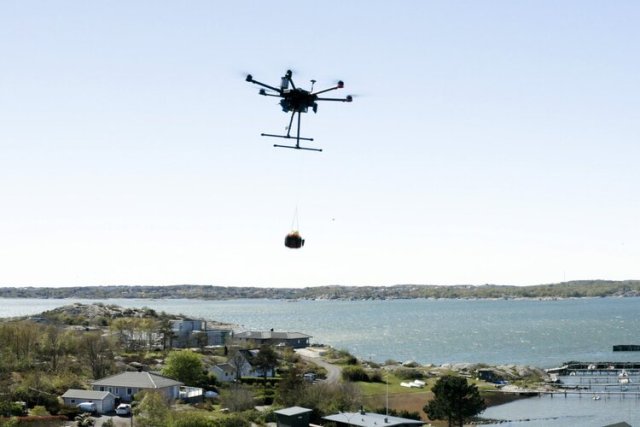
Everdrone effectiveness validated by study in Lancet Digital Health
London, 23 November 2023, (Oilandgaspress) – Over a period of eleven months, Everdrone’s innovation team and researchers from The Center for Resuscitation Science at Karolinska Institutet, Sweden, have been assessing the logistic viability of Everdrone’s First on Scene system in Region Västra Götaland. Their findings are presented in an article in Lancet Digital Health, the number one digital health publication, with a global reach.
During the period April 21, 2021, to May 31 2022, the researcher group, led by Andreas Claesson, associate professor of emergency medicine, have collected data from 58 defibrillator (AED) deliveries. On December 9th, 2021, thanks to the successful delivery of an AED, lifesaving measures through defibrillation could be initiated on a 71-year-old man suffering an OHCA in Trollhättan, Sweden. After initial treatment on site, the patient was rushed to the hospital where he fully recovered.
“The data has been collected during a longer period, from a great number of incident reports, in a complex environment. All the while ‘competing’ against ambulance-based first responders”, explains Andreas Claesson. “The findings from the collected data are conclusive – two times out of three, 67% of the times, the drone arrived in good time before the ambulance.”
The median time benefit when the drone was first on scene was 3 minutes and 14 seconds, from dispatch to arrival, but the maximum difference was 8 minutes.
“When considering that for every minute saved in getting assistance and a defibrillator to a person experiencing heart failure, the chance of survival increases by 10% – the time saving is really significant”, says Andreas Claesson.
“Time-sensitivity is a constant factor that influences everything we do”, says Daniel Blecher, Head of Customer Operations at Everdrone. “Presently, our unofficial record number is 87 seconds from takeoff to delivery.”
The study has taken several factors into account, such as day/night differences, different environments and different weather, but still the findings validate the viability. Everdrone’s First on Scene results in a clinically relevant median time benefit of over three minutes.
Information Source: Read full article
Energy ,Petrol , Electric Power , Natural Gas , Oil , Climate , Renewable , Wind , EV , LPG , Solar , Electric , Electric Vehicles, Hydrogen, Oil Price ,Crude Oil, Supply, Biomass , Sustainability,

